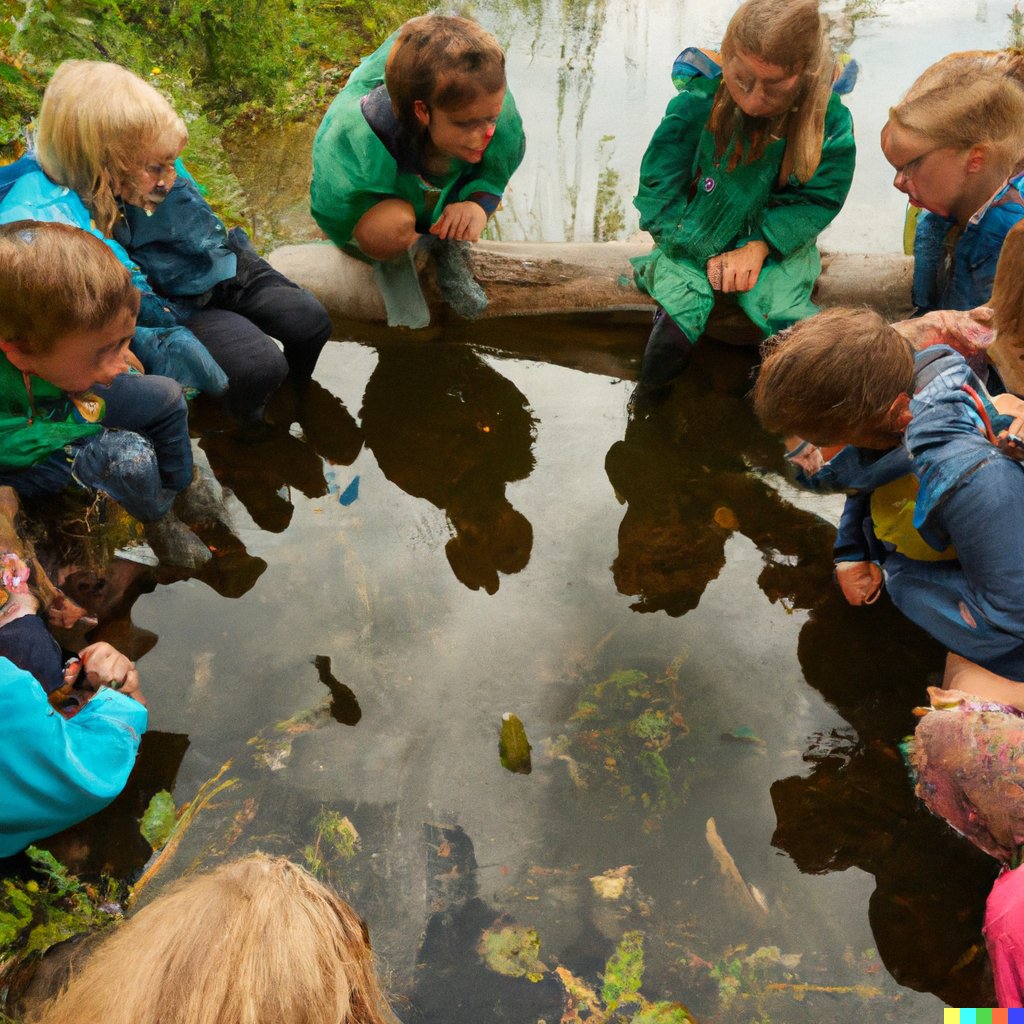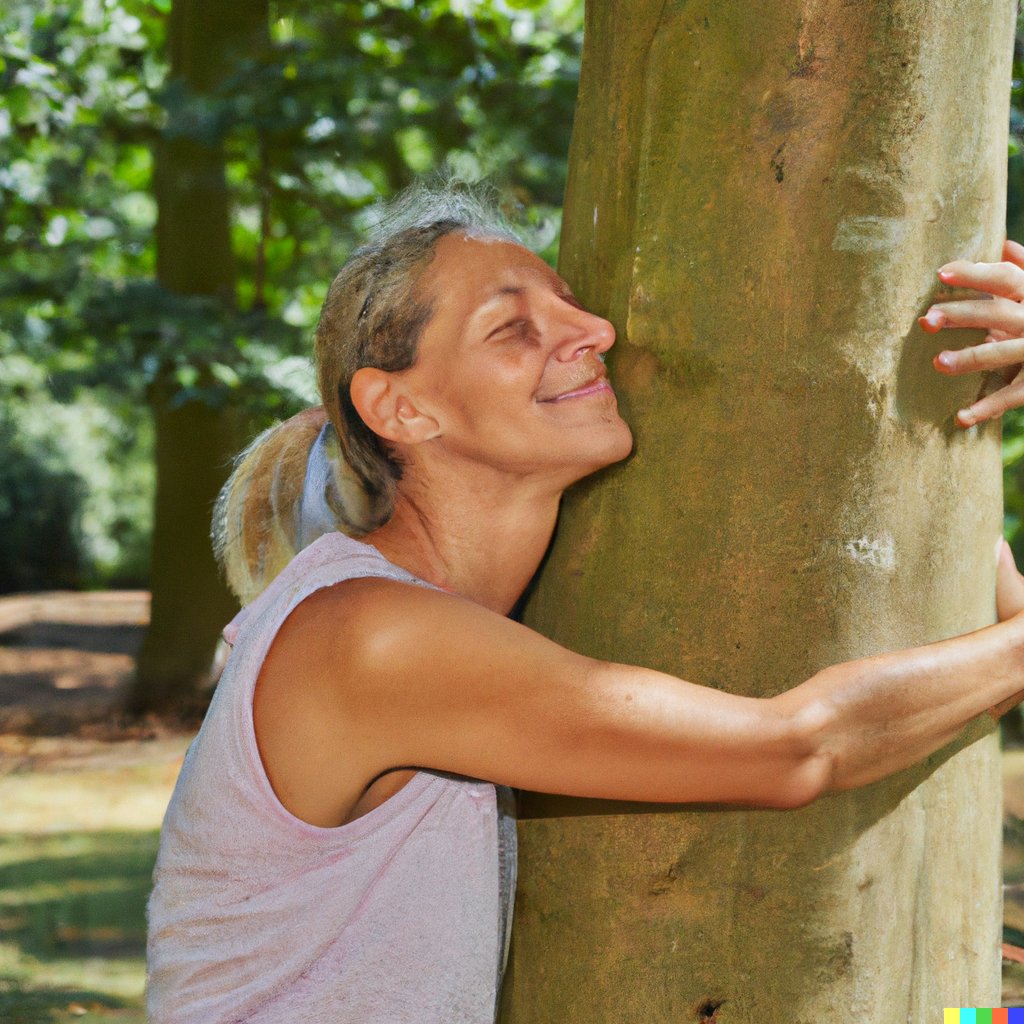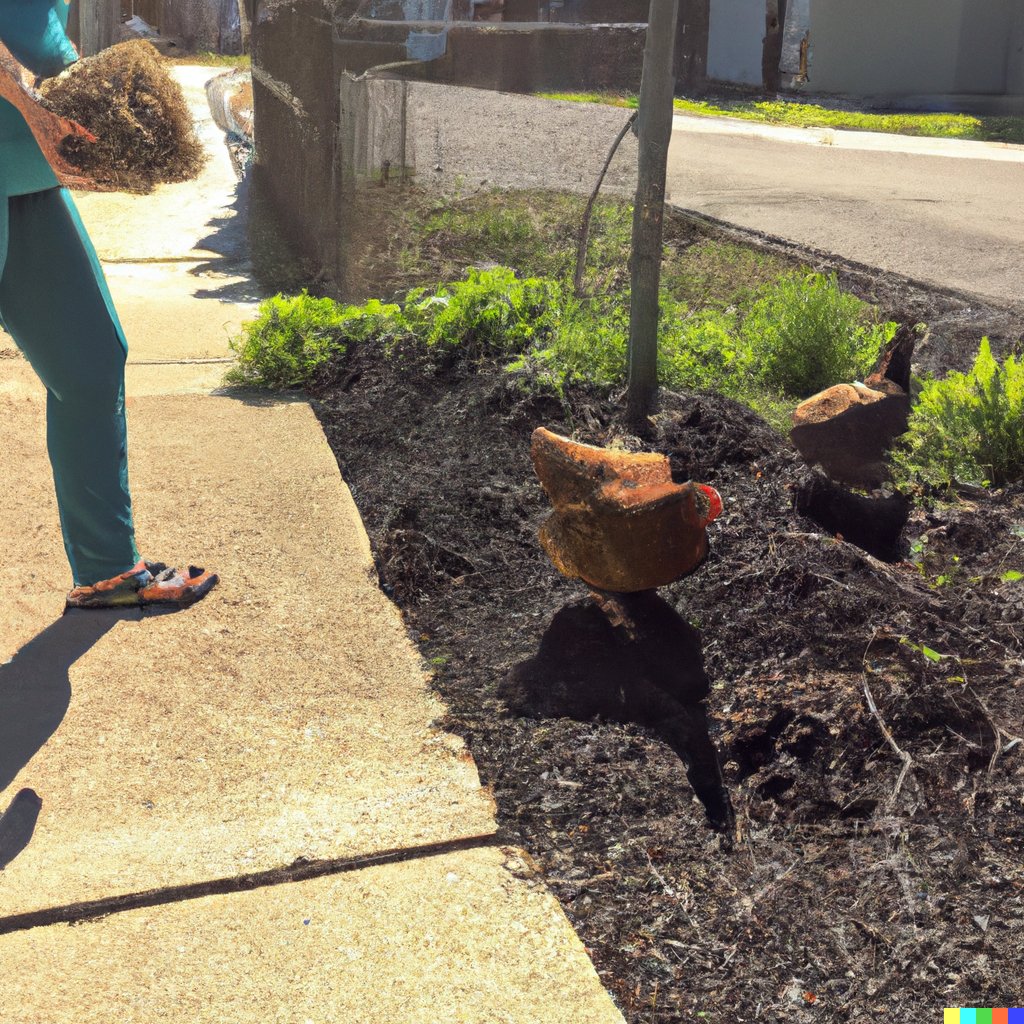
Welcome to a voyage of environmental enlightenment. As we navigate through the complexities of our planet's ecosystem, the importance of environmental education becomes increasingly evident. You may be wondering how you can make a difference. Don't worry, we have the answers. Join us and unlock the potential to protect our planet.
Transformative Potential of Environmental Education
Environmental education has the potential to be a powerhouse of transformation. It can help individuals cultivate ecological literacy, foster awareness and promote green education. Plus, it nurtures sustainable learning, inspires action and offers a utopian vision of society. It also equips us with critical thinking skills and problem-solving abilities.
The power of environmental education is best exemplified by an inspiring story from an elementary school in a rural community. There, students experienced hands-on activities, field trips and project-based learning. This connection with nature led to recycling programs, sustainable farming practices and campaigns for environmental protection. This transformation spread to their families, neighbors and community, fostering a culture of sustainability and ecological consciousness.
So, who needs a therapist when you can unleash your inner eco-warrior and discover the power of environmental education?
Inspiration: The First Step in Environmental Learning
The Catalyst for Environmental Learning.
Inspiration is the spark to begin a journey of environmental learning. A feeling of admiration and curiosity can cause what we call an eco-epiphany! This is often brought on by incredible experiences, such as forest walks or wildlife observation.
This spark of inspiration builds a foundation for environmental education. It fires up curiosity and encourages people to explore the wonders of nature. It creates a sense of responsibility and connection, pushing us to protect our planet.
Take Sarah, for example. She had lived in the city her whole life, but on a vacation, went on a guided forest walk. As she witnessed the beauty of the birds and the grandeur of the trees, she was filled with awe. This moment changed Sarah forever - she returned home inspired to spread awareness of conservation and advocate for the environment.
So, come and join us on this journey of environmental education! Trees will teach us and Mother Nature will grant us diplomas.
Unraveling the Essence of Environmental Education
Environmental Education Unleashed: Embracing Core Concepts
Unlock the power of environmental education! Go beyond classroom learning and learn about nature's interconnectedness. Encourage critical thinking and promote engagement with local communities. See how this holistic approach creates global citizens ready to tackle environmental issues.
Igniting Change: Inspiring Action for a Sustainable Future
Take the first step and become part of the solution. Understand the urgency of environmental preservation and make a lasting impact. Equip yourself with knowledge, cultivate critical thinking skills, and take action in your community. Shape a better future for generations to come!
Getting Dirty for Education?
It's not just for kids anymore! Embrace environmental education as your pathway to making a difference. Get ready to get dirty and start your journey today!
Nature-Immersed Learning: Beyond the Classroom
Nature-Immersed Learning: Beyond the Classroom!
Venture beyond the four walls of a traditional classroom and unleash a world of knowledge and discovery.
Engage in outdoor activities and experiential learning to form a connection between theory and practice.
Observe wildlife and ecosystems to gain a deep understanding of environmental issues.
Witness firsthand the wonders of nature and use it as a living laboratory.
Become an active participant rather than a passive learner.
Interact with wildlife and contribute to conservation projects.
Forge an emotional bond with nature and create a lasting connection.
Throughout history, educators have advocated for nature-immersed learning to instill a love for the environment.
Unlock the secrets of Mother Nature's bedtime stories and experience true empathy through environmental storytelling!
Empathy Through Environmental Storytelling
Experience Empathy Through Environmental Narratives!
Enthrall audiences with captivating stories to evoke empathy for the environment and its inhabitants. Take individuals on a journey, living as eco-heroes. This connection and motivation encourages activism. Storytelling transports people to distant worlds, inspiring them to make a difference. Don't miss out - join the movement!
Attention Captain Planet! These young environmental protectors are ready to save the world. Armed with knowledge and a game of recycling bin basketball, they will be unstoppable.
Empowering Young Environmental Warriors
Nurturing youth eco-leadership is essential for a sustainable future! We must empower young environmental warriors by imparting knowledge, fostering advocacy and enabling knowledge sharing.
- Instilling a sense of responsibility by empowering young minds creates a profound connection to the environment.
- Promote active engagement in green initiatives and allow them to learn from each other.
- Provide opportunities to develop leadership skills for inspiring others and creating positive change.
- Bridge the gap between generations through partnerships and collective action.
- Systemically change education systems to promote holistic learning experiences.
Plus, we have to go beyond individual action! Encourage practical involvement in local environmental issues and interdisciplinary approaches to foster creativity. Who knows, maybe we can even make it rain by planting trees in our cities!
Urban Greening: Bringing Nature to Cities
Urban Greening: Revitalize Cities with Nature!
Bring nature back to cities with urban greening! Create community gardens, rooftop green spaces, and urban wildlife sanctuaries. Connect city dwellers with nature and its benefits - like improved air quality, temperature regulation, and less noise pollution.
Plus, green spaces provide recreational activities, stress relief, and social interactions. For example, one city transformed abandoned buildings into lush gardens with native plants and wildlife habitats. It's not just beautifying areas, but also giving people a space to escape the hustle and bustle of city life and be at peace with nature.
Urban greening is the way to go! Prioritize these projects and create sustainable environments for humans and nature. Harmonize urban development and ecological preservation.
From Waste to Art: The Upcycling Movement
Transformation from Trash to Treasure: Upcycling's World
Upcycling is a movement that gives new life and value to discarded materials. Instead of throwing away waste, people and communities make art and sustainable crafts from it. This helps the environment.
Look at these upcycling projects:
|
Project |
Used Materials |
Result |
|
Plastic Bottle Vase |
Plastic bottles |
A vase made from recycled plastic |
|
Upcycled Furniture |
Old wooden pallets |
Stylish furniture from reclaimed materials |
|
Tire Planters |
Used car tires |
Colorful planters for gardens and outdoor spaces |
|
Newspaper Basket |
Old newspapers |
Functional baskets made from rolled-up newspaper strips |
|
Glass Jar Lanterns |
Empty glass jars |
Decorative lanterns crafted by painting & adding candles |
Upcycling reduces waste in landfills. It also promotes creativity and resourcefulness. It encourages people to think outside the box and explore possibilities of discarded items. By transforming waste into art, upcycling shows the power of environmental education in nurturing a sustainable mindset.
Upcycling has its roots in the past. Artists and craftsmen repurposed materials due to scarcity. The practice got more attention recently when society realized the importance of reducing waste in a sustainable way. Upcycling is now a popular choice to make a positive impact on both the environment and communities.
Eco-Recovery Post-Disasters: Mother Nature always finds a way. Just like that aunt who always bounces back for round two of dessert after Thanksgiving dinner!
Eco-Recovery Post-Disasters
Eco-Recovery: Essential for Long-Term Sustainability.
Reforesting is a key part of restoring landscapes after natural disasters. It helps repair damage, boosts biodiversity and reduces the risk of future calamities.
Forest Fire Recovery Programs are a must -- combining science and community involvement. They focus on rehabilitating fire-wrecked areas, and teaching fire prevention and management strategies. Replanting native species and protecting vulnerable habitats are also key objectives.
Long-term Ecosystem Restoration is just as important. Plans should be made to promote ecological stability. Buffer zones can reduce the impact of future disasters, and protected areas preserve biodiversity and provide refuge for species affected by the disaster.
Collaboration among Stakeholders is key to successful eco-recovery. Governments, non-profits, local communities and scientific institutions must come together to prioritize efforts, share resources and secure sustainable funding. Only then will the environment be restored post-disaster.
Global Impact of Environmental Education
Environmental Education: A Global Force.
Environmental education has a huge global effect, encouraging home initiatives and driving a worldwide eco-movement. It has the power to transform individuals and communities by promoting sustainable actions and fostering a sense of global unity.
This influence reaches far beyond local boundaries, inspiring people from diverse backgrounds to take up environmental stewardship. From remote villages in developing countries to bustling cities everywhere, environmental education acts as a catalyst for change.
It gives people the power to understand and appreciate how their actions are connected to the environment. Plus, it equips them with knowledge to make informed decisions that positively impact their surroundings.
One example of this is a community in rural Africa that used an educational program to fight deforestation. Through experiential learning and hands-on activities, community members found alternative fuel and livelihood sources that reduced their dependence on forest resources. This not only preserved their local environment but also improved their quality of life.
Environmental education has a huge potential to bring about positive change on both small and large scales. We must embrace its global reach and influence to allow people worldwide to better understand and commit to eco-friendly choices. By using the power of education, we can create a harmonious coexistence between humans and our planet.
Eco-Classrooms: Transforming Educational Spaces
Eco-Classrooms: Spurring Innovative Learning!
The world is embracing sustainability, and so are educational spaces. Eco-classrooms are redefining traditional learning environments. They promote sustainable curricula integration and eco-friendly habits among students.
These spaces come with many elements that deeply impact learning. Natural lighting and ventilation reduce energy consumption. Living walls and rooftop gardens offer hands-on learning opportunities about biodiversity and food production.
Moreover, eco-classrooms promote active engagement with nature. Outdoor classrooms and nature trails enhance creativity and problem-solving skills. They also instill a sense of responsibility towards the environment in young minds.
Educators must embrace educational innovation to prepare students for future challenges. By creating eco-classrooms, schools can cultivate love for nature, promote sustainable practices, and empower the next generation to become eco-leaders. Transform educational spaces into dynamic hubs of learning and inspiration!
Nurturing Future Eco-Leaders
Eco-Empowerment for the Leaders of Tomorrow! Schools must prioritize environmental education to foster a sense of responsibility and engagement in students.
Learn how to:
- Impart Knowledge: Educate young people about environmental topics, sustainability & protecting natural resources.
- Foster Eco-Leadership: Stimulate students to take action, think creatively & develop innovative solutions.
- Cultivate Shared Responsibility: Instill a sense of collective accountability for a sustainable future & empower future planet guardians.
A 2019 Green Teacher Magazine study found that eco-educational schools witness heightened student engagement & responsibility! Get ready to explore the amazing world of environmental education - Mother Nature is taking notes!
Environmental Education for Everyone
To promote awareness and understanding of our environment, this section investigates Environmental Education for Everyone. It stresses the need for inclusivity and access to knowledge and resources for environmental preservation, eco-leadership development, and planetary protection.
As detailed in the table, EEE covers a broad range of dimensions. These include:
- Formal Education - Schools that integrate environmental topics into curricula;
- Nature-Based Learning - Outdoor activities that foster connection with nature;
- Community Engagement - Joint projects that tackle local environmental challenges;
- Online Platforms - Digital resources that provide accessible information.
Organizations have come up with modern approaches to suit diverse populations. These involve outdoor programs, local community partnerships, and user-friendly online educational platforms.
To effectively use EEE, we must continue to expand access to knowledge and resources across backgrounds. By providing individuals with the tools and data they need to support environmental causes, we can nurture future stewards who will contribute to sustainable growth and planetary protection.
The journey of EEE began several decades ago when global climate change worries got attention. Realizing the need for environmental education on a global scale, governments, nonprofits, and educational institutions joined forces to create strategies to instill ecological awareness across society. The resulting initiatives have since created an immense environmental impact that continues to shape our collective future.
Role of Schools in Environmental Learning
Schools have a huge impact on environmental education. Lessons and activities outdoors help students understand the importance of projects that protect the environment. Through educational partnerships, schools give students the skills to be good stewards of the planet.
Adding hands-on experiences to lessons strengthens students' knowledge and enthusiasm for environmental topics. Who needs Marvel superheroes when the community is united to protect the environment?
Local Community Empowerment through EE
Local Community Empowerment through Environmental Education (EE) is essential for sustainable practices and environmental stewardship. By getting locals involved in educational activities, they can make informed decisions which help the environment. This addresses regional issues and creates a sense of ownership and responsibility.
The table below explains the different aspects of Local Community Empowerment through EE:
|
Aspect |
Description |
|
Awareness |
Raising environmental issues and their effect on the community. |
|
Education |
Giving knowledge/skills to take part in conservation efforts. |
|
Collaboration |
Encouraging work between stakeholders: community, NGOs, authorities. |
|
Action |
Inspiring people to do sustainable activities in their lives. |
Additionally, local community empowerment through EE looks at creating strong relationships and shared responsibility in protecting the environment.
A study by the World Bank suggests that communities with environmental education programs are more likely to use sustainable practices and contribute to long-term preservation.
What is the purpose of "Unleashing the Power of Environmental Education: A Journey of Discovery"?
The purpose of this program is to engage individuals in a journey of discovery to raise awareness and understanding of environmental issues and empower them to take action to protect our planet.
Who can participate in "Unleashing the Power of Environmental Education: A Journey of Discovery"?
This program is open to people of all ages and backgrounds who have an interest in learning about and making a positive impact on the environment.
What topics are covered in "Unleashing the Power of Environmental Education: A Journey of Discovery"?
The program covers a wide range of topics related to the environment, including climate change, sustainable living, conservation, and environmental justice.
How is "Unleashing the Power of Environmental Education: A Journey of Discovery" structured?
The program is structured as a series of interactive workshops, field trips, and hands-on activities designed to engage participants in learning about the environment and taking action to protect it.
Can I earn any certifications or credentials through this program?
While this program does not offer any formal certifications, participants will gain valuable knowledge and skills that can be applied to personal and professional endeavors related to the environment.
Are there any costs associated with participating in "Unleashing the Power of Environmental Education: A Journey of Discovery"?
The cost of participating in this program may vary depending on the location and specific activities, but efforts are made to keep the costs minimal and accessible to all interested individuals.
Conclusion:
Environmental education (EE) plays a pivotal role in shaping a sustainable future by fostering ecological literacy, empathy for the environment, and empowering individuals of all ages to be eco-conscious leaders. Through immersive nature experiences, storytelling, and transforming educational environments, EE cultivates a deep understanding and appreciation of our natural world. As we integrate these principles into our daily lives and communities, we lay the foundation for a more sustainable, informed, and connected society, working collaboratively to address environmental challenges and steward our planet towards a greener, healthier future.







.jpeg)






